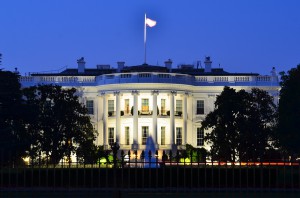 The federal government shutdown that looms ahead on Oct. 1 will not immediately affect higher education, but could eventually lead to cuts to financial aid programs and research funding.
The federal government shutdown that looms ahead on Oct. 1 will not immediately affect higher education, but could eventually lead to cuts to financial aid programs and research funding.
Unless Congress can reach a compromise on a stopgap measure to keep government open, the federal government will shut down on the first day of October. This would mean that all non-essential federal government operations would shut down. According to Inside Higher Ed, however, it’s not clear how this will affect higher education programs.
On Sept. 17, the White House issued a memorandum calling for all federal departments to come up with an operations plan “during a potential lapse in appropriations.” Essentially, federal departments will be asked to suspend functions unless doing so “would imminently threaten the safety of human life or the protection of property.”
Another area that is exempt are any operations needed to discharge the president’s constitutional duties and powers.
Also, Social Security checks would continue to get mailed and veteran’s hospitals would stay open, according to the Washington Post.
“The Administration does not want a lapse in appropriations to occur. There is enough time for Congress to prevent a lapse in appropriations, and the Administration is willing to work with Congress to enact a short-term continuing resolution to fund critical Government operations and allow Congress the time to complete the full year 2014 appropriations,” the White House memorandum states.
“However, prudent management requires that agencies be prepared for the possibility of a lapse.”
How it will affect education is unclear. However, in 2011, when anticipating a similar government shutdown, the federal Department of Education had prepared to have 94% of its workforce stay home, according to Inside Higher Ed. They planned for a small number of staff to rotate into the office if the shutdown went on longer than one week.
The one-week period also was seen as critical for student loan funding. In 2012, Education Department officials warned that a shutdown of longer than a week would mean that funding for Pell Grants and other federal loans would have to be cut back, as well as money sent to colleges and universities.
Justin Draeger, president of the National Association of Student Financial Aid Administrators, told Inside Higher Ed that he is concerned Congress will not take action to remove the automatic cuts to campus-based financial programs and scientific research.
Making things more complicated is the fact that the debate over raising the federal debt ceiling is also scheduled to begin in mid-October, raising the possibility that funding for higher education might be cut as officials decide which areas to fund and which to not fund.





